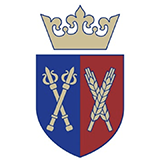Detailed introduction of the University of Agriculture in Krakow:
Introduction
The University of Agriculture in Krakow is a Polish institution of higher learning with a long history and significant influence in agriculture and related fields. It provides education at undergraduate, postgraduate, master and doctoral levels, and has trained a large number of professionals for Poland and even Europe.
Overview
Number of students: about 12,097 students.
Number of faculty and staff: about 1,400 employees, including 758 academic staff.
History and establishment time
The history of the school can be traced back to 1890, when a three-year agronomy major was established in the Philosophy Department of Jagiellonian University in Krakow. In 1923, the major was transformed into the Agricultural College of Jagiellonian University. During World War II, agricultural research was carried out in secret. After the war, the college resumed its activities and underwent structural adjustments. In 1946, it was changed to the Agricultural and Forestry College. In 1949, a separate Forestry College was established, but the Forestry College stopped recruiting students in 1953. In 1953, the Higher Agricultural College of Krakow was established on the basis of the Faculty of Agriculture and Forestry, and then several colleges and professional disciplines were established between 1955 and 2008. In 1972, the Higher Agricultural College was renamed the Agricultural University, and on September 12, 1978, it was named after the Polish agricultural science pioneer Hugo Kołłątaj. On April 11, 2008, it was officially renamed the Agricultural University of Krakow.
School Strength
Faculty: With more than 800 researchers and 175 professors and associate professors, the school has a strong faculty and can provide students with high-quality teaching and guidance.
Scientific Research Achievements: The school has carried out extensive and in-depth research in the fields of agriculture, forestry, life sciences, veterinary medicine, economics, natural sciences and technology, and has achieved a series of important scientific research results, making positive contributions to promoting the development of related fields. For example, the school's scientific research results have played an important role in increasing crop yields, protecting the ecological environment, and promoting animal health.
International Cooperation: Actively cooperate and exchange with many domestic and foreign universities, scientific research institutions and enterprises, and is one of the members of many international cooperation projects, such as the Erasmus + program, etc., providing students and teachers with a broad international exchange platform and promoting academic and cultural exchanges and integration.
Institutional Nature
Public University.
Educational Philosophy
Focus on inheriting and carrying forward academic traditions, emphasizing respect for academic values in the teaching process, and cultivating students' recognition and sense of responsibility for concepts such as humanism, freedom and tolerance.
Committed to integrating the latest scientific research results into teaching, so that students can master knowledge based on current scientific achievements, and cultivate students' skills in using the latest technical solutions and technologies to adapt to the rapid changes in society and civilization.
Pay attention to the cultivation of students' social abilities, focus on shaping students' open attitudes and social responsibilities, so that graduates Be able to become a creative and responsible member of society.
Key laboratories and disciplines
Key laboratories: The school has a number of advanced laboratories and research centers, such as biotechnology laboratories, food technology laboratories, environmental engineering laboratories, etc., which provide good conditions for teachers and students to carry out scientific research activities.
Key disciplines: Agriculture and economics, animal science, environmental engineering and surveying, food technology, forestry, horticulture, production engineering and energy engineering, biotechnology, landscape architecture and other disciplines are the school's key disciplines, and have made remarkable achievements in teaching and scientific research, and have a high reputation and influence in Poland and even internationally.
Departments
The school has the following colleges and departments :
College of Agriculture and Economics
College of Animal Science
College of Environmental Engineering
College of Food Technology
College of Forestry
College of Horticulture
College of Agricultural Engineering
College of Biotechnology
College of Landscape Architecture
University Veterinary Center (jointly with Jagiellonian University)
Rzeszów School of Economics Branch.
Ranking
Ranked 18th in the national university rankings of the Global University Network (4ICU).
Expenses
No clear tuition information has been obtained for the school, but it is understood that the average living cost in Poland is about 330 euros per month.
Campus
Location and environment: The main campus is located at 21 Mikiewicz Street in Krakow, Poland. Krakow is the old capital of Poland, with rich historical and cultural heritage and a strong academic atmosphere, providing students with a good learning and living environment.
Campus facilities: The campus is fully equipped, including modern teaching buildings, laboratories, libraries, student dormitories, sports facilities, etc. The school's library has a rich collection of books, which provides strong support for the study and research of teachers and students; the sports facilities are complete to meet the needs of students' daily exercise and physical education courses.
-
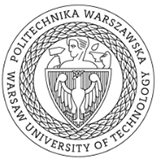
Warsaw University of Technology
-

Poznan University of Life Sciences
-
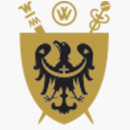
Wroclaw Medical University
-

Nicolaus Copernicus University
-
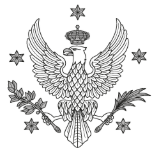
University of Warsaw
-
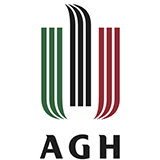
AGH University of Science and Technology
-

Silesian University of Technology
-
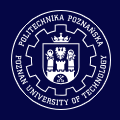
Poznan University of Technology
-

Jagiellonian University
-
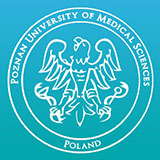
Poznan University of Medical Sciences
-

Mesoamerican University
-

Istmo University
-

Mariano Galvez University of Guatemala
-

Regional University of Guatemala
-

Galileo University
-

Francisco Marroquín University
-

Rafael Landívar University
-

University of the Valley of Guatemala
-

University of San Carlos of Guatemala
-

Technological Institute of Tlaxcala Plateau
-

Golfo University
-

Technological University of South Sonora
-

Technological University of Huejotzingo
-

Tizimín Institute of Technology
-

Chilpancingo Institute of Technology

